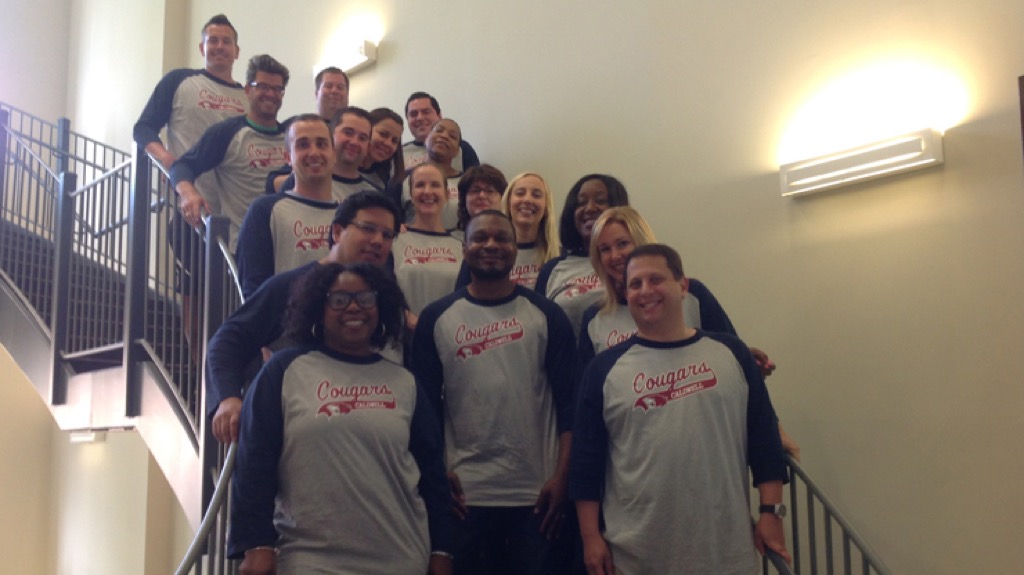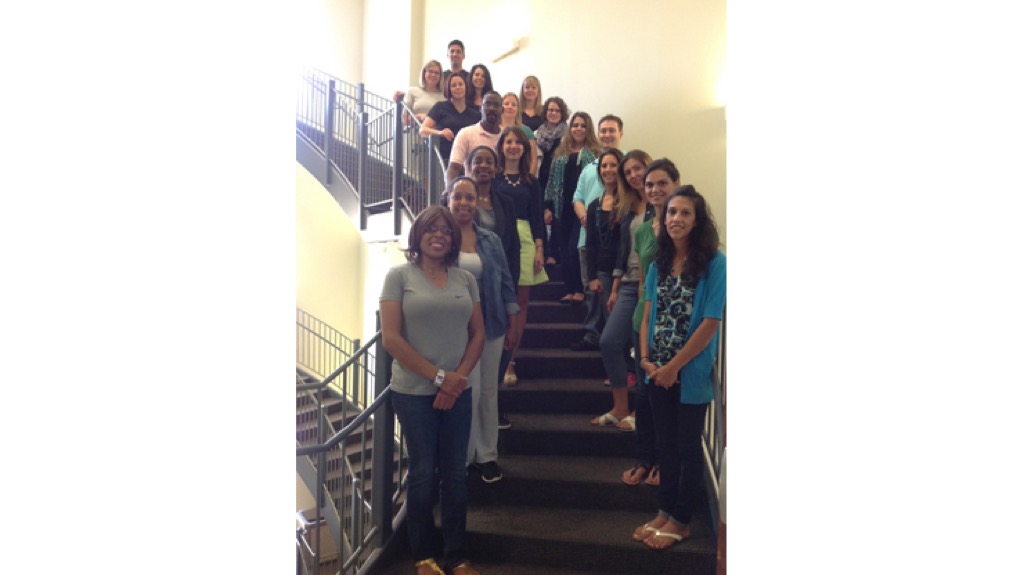Caldwell University
October 7, 2015
Doctoral Cohorts Promote Success in New Educational Leadership Program
Lauren Banker always wanted to pursue her doctoral degree. As an elementary school principal in Summit and the mother of two children, she knew she had to find a program that worked with her life’s pace. She was delighted to learn of Caldwell University’s new doctoral program in educational leadership. “The timing of the classes and the length of the overall program allow me to balance my career, family, and academic pursuits.”
A mix of Friday night and Saturday classes, along with online classes, the program is designed to meet the needs of school leaders, teachers, or candidates interested in organizational leadership, explains Dr. Joanne Jasmine, professor in the education division and co-coordinator of the graduate program. “It is formatted to give the students the most current research and a blend of the best leadership practices from across the United States.”
Jill McLaughlin is also an elementary school principal, in Montclair, and the mother of a 2-year-old and a newborn. The “comprehensive syllabi” and the fact that there are “no surprises” are keys to helping her to prepare and to pace herself throughout the semester.
The group learning atmosphere, known as a “cohort,” appeals to the students. “I’m working with and learning from a diverse group of education leaders and developing professional networks,” says McLaughlin, who lives in Roseland, N.J. “I believe in the benefits of social learning and collegial support,” says Banker, a resident of Watchung, N.J. “We are very close and we encourage each other throughout the classes and promote each other’s successes.”
The first cohort has 17 students, and they are in their second year. The second cohort has 19 students, and they began in fall 2015. They work as teachers, principals, a political aide, central administration and human resources staffers at K-12 schools, and higher education administrators.
The program can be completed with as little as 54 credits for the Ed.D. or 66 credits for the Ph.D. with the transfer of an appropriate 36-credit Master’s degree. Students choose from one of three tracks—K-12 Leadership, Special Education Leadership, or Higher Education Leadership.
Dr. Jasmine says the program connects theory and practice to facilitate problem-solving, emphasizes decision-making skills, and includes the state, regional, and national standards for school leaders.
The students say they already see the practical benefits.
“Several of our course assignments have been directly related to our profession or have involved research within our (current) work,” says McLaughlin.
“In order to be an effective teacher, one must also be a successful learner,” adds Banker. She has started discussing her dissertation with her advisor and says the conversation was fascinating. “It is changing my work … I’m looking forward to working through my study and drawing conclusions which will further my work.”
Balancing life, work, and school is a challenge and the program is rigorous, but the students agree that organization is primary. McLaughin prepares in advance and paces her work throughout the semester. Banker takes time each day and each week to plan her schedule. “I keep lists of priorities and work through items one at a time. I try not to bog myself down in minutia, but rather I keep big-picture goals in mind and work incrementally toward those goals.”
She strives to keep it all in perspective. “I enjoy my family and friends and stay present in my moments with those I love.” Yes, there are times when she gets overwhelmed. “In those instances I reach out to friends or colleagues for support, take a breath, and remind myself to focus on one thing at a time.”
McLaughlin advises potential students not to wait for the “right time” to pursue their dreams. “I am proud that I am finally working toward achieving this dream.”
Banker is a “lifelong learner” who always seeks to take her craft to the next level. “This program is helping me fulfill this lifelong dream of a doctorate.”







